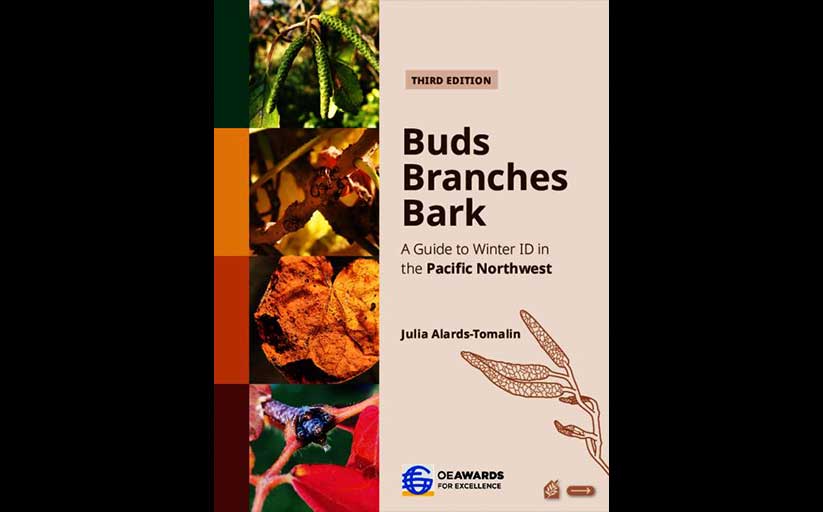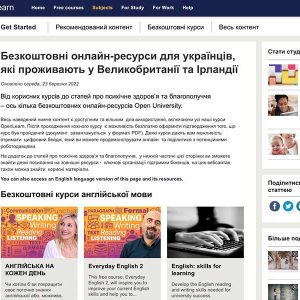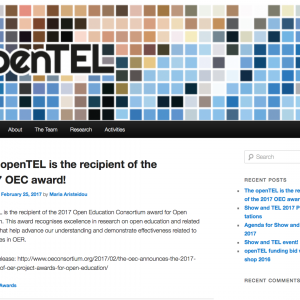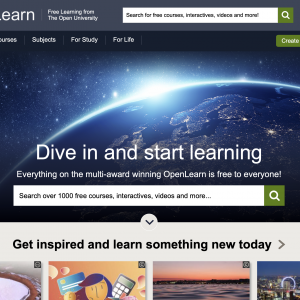As a student at British Columbia Institute of Technology (BCIT), Julia Alards-Tomalin noticed the timing of most plant identification courses over winter was a challenge as the vast majority of textbooks and guides provide photos and notes based on how plants and trees look in the summer.
Now a faculty member of the BCIT Renewable Resource, Julia teaches across three programs, the Forestry and Natural Areas Management and the Fish, Wildlife and Recreation Diploma programs as well as the BSc in Ecological Restoration. Julia’s focus on what students need led to her leading a collaborative and creative process necessary to create the open textbook: Buds, Branches and Bark: A Guide to Winter ID in the Pacific Northwest.
Julia and her team were committed to creating a positive impact in the community and successfully developed a legacy product and resource that will be added to and used for many years to come. No book like it previously existed in the region. In 2020 Julia received a BCIT Open Education Grant and adopted an open pedagogy approach by recruiting her students to conduct the field research. However, research for the first edition was limited by the restrictions of the pandemic.
For the second edition, the students were out in the field collecting notes and imagery. They built on existing resources, added plants, created new drawings and engaged not only faculty and students within our department, but gave students within the graphic arts program at BCIT an opportunity to share their skills and participate in a real-world task that benefits them both in their work experience and application for work in their field.
Julia established a collective group with generous and open invitation for others to join her in this work, provided the idea and context for open collaboration and used novel tools to open access to educational opportunities that were not only for the end user, but for the developer and participants in the project itself. The method and practice of learning employed here generated a beautiful interactive PDF and a digital online new 3rd edition. The resource is a result of open pedagogy, and it will support both instructional and self-directed learning across programs and courses as well as offer a valuable resource to industry partners and practitioners. This is an outstanding example of open educational practices and of using digital technology to collaborate, create, and share knowledge and skills.
The project involved the collaboration of nearly 200 students across three schools at BCIT. This project inspired many people and it brought many members of the BCIT community closer together. Buds, Branches and Bark demonstrates what is possible through open learning projects, collaboration, and interdisciplinary initiatives. It also highlights the talents and potential of students within our institute.
See also the news story “Life at BCIT: Natural Resources faculty partners with students to co-create an Open Educational Resource textbook.”
The book created opportunities for individuals to shine and build skills and confidence through sharing and creation of a living document. It was an authentic task that can now be developed and added to as a legacy for future faculty and students. This book is a model for the many who aspire to follow in the footsteps of this project
Award Nominator
Open pedagogy on even a small scale can be challenging, so to pull off an interdisciplinary project involving nearly 200 students across 3 schools is quite an achievement. It sounds like the project has not only succeeded in terms of the learning experience for students but has also benefited the institution in terms of building relationships.
Award Reviewer
Updates
Julia shared that the third edition of Buds, Branches and Bark was published in December, 2023. This new edition includes 28 additional plants, a series of plant tour maps, improved images and a photo gallery.
The third addition is available at https://repository.lib.bcit.ca/islandora/buds-branches-and-bark-guide-winter-id-pacific-northwest-third-edition
Explore more about this awardee…

Podcasts from Open Education Global
Our newest episode takes you to Vancouver, Canada, where the voice Julia Alards-Tomalin, faculty at the British Columbia Institute of Technology (BCIT) describe the inspiring story behind the award winning Buds, Branches, and Bark, recognized with a 2023 Open Awards for Excellence in Open Pedagogy.
We can trace the path from Julia’s childhood curiosity about the natural world growing up in Gimli, Manitoba to her studies as an undergraduate at BCIT. Her observation then that the primary time of year, in winter, when students learn to identify plants and trees is a challenge given most guidebooks contain photos and descriptions from full summer display. This experience literally planted seed germinated as an idea when Julia, as an instructor at BCIT, decided to develop an open educational resource winter identification plant guide.
Inspired by a presentation (we guess it might have been one by Robin Derosa), Julia adopted an open pedagogy approach by having her students collaborate in researching, writing and illustrating the first edition of Buds, Branches and Bark. Presenting this work at BCIT initiated an expansion of its open pedagogy approach via a conversation with colleague in the media design program, who suggested having their students provide design support. Since then more than 200 students from three different academic departments have been part of this continually growing resource.
You will hear in Julia’s voice the excitement and enthusiasm for the the newest third edition released in December 2023. The production level of Buds, Branches, and Bark rivals commercially published guides. Listen in to our conversation to appreciate this award winning example of open pedagogy in practice.

This Episode
FYI: This section of show notes alone was generated by AI Actions in the Descript editor we use to produce OEG Voices.
In the journey of open education and passion for natural world, Episode 65 unfolds the captivating conversation with Julia Alards-Tomalin, an open education enthusiast and instructor at the British Columbia Institute of Technology. Featuring her remarkable open pedagogy project ‘Buds, Branches and Bark,’ the episode delves into Julia’s roots in Manitoba’s woodlands, her educational path through BCIT, and her innovative approach to creating an open educational resource (OER) on winter plant identification. Host Alan Levine and co-host Marcela Morales engage in a rich dialogue about the inception, challenges, and triumphs of Julia’s project, highlighting how open education, collaboration across disciplines, and student involvement have been key in crafting an accessible, evolving guide for learners worldwide. The conversation also explores the broader impact and future possibilities of open educational resources in fostering a more equitable and connected learning environment.
- 00:00 Early Motivations and Open Education
- 00:28 Developing ‘Buds, Branches and Bark’
- 01:58 A Childhood in Nature
- 06:50 The Open Education Journey
- 24:35 Looking to the Future
at Descript.com
Additional Links and Quotes for Episode 65
So the time of year when you’re a student, like it’s not ideal for looking at plants. Courses start in the Fall and they go from September till May. And in that time period, it’s mostly the winter here. It’s really hard to learn about the natural world when all of the resources that we had were focused on looking at plants during the growing season when they have leaves.
I remember standing outside in the forest looking at little trees and trying to figure out what the heck they were. And all we had was our book that only has pictures of leaves and things in it. And I was so frustrated.
I remember talking to one of my instructors about it being like, well, why aren’t there any resources? And he was like, well, you’ll just have to make one. I guess that kind of where seed was planted. I really wanted there to something to help me.
Julia Alards-Tomalin on inspiration to create Buds, Bark, and Branches
- About Julia Alards-Tomalin (BCIT)
- Gimli, Manitoba (Wikipedia)
- Forest and Natural Areas Management program (BCIT)
- Open Education Grants (BCIT)
- Buds, Branches and Bark: A Guide to Winter Identification in the Pacific Northwest (3rd edition, BCIT)
- 2023 OE Award for Excellence in Open Pedagogy (OE Global)
- Plant Press: A Plant Identification Card Game (early project, BCIT)
- Buds, Branches, and Bark (1st edition)
- Buds, Branches, and Bark (2nd edition)
- Buds, Branches, and Bark photos (flickr)
- The collaborative creation of Buds, Branches and Bark: A Guide to Winter Identification in the Pacific Northwest, a BCIT OER textbook (Open Education Week 2023 presentation)
- Presentation at the OEGlobal 2023 Conference
I was so honored. I was like almost in tears really. And when I went to school the next day and told students like they just burst out into a round of applause. People were hugging each other. I was so proud to see people working together, using each other’s different strengths, collaboratively. It’s just really touching to see what we can do when we work together.
Julia Alards-Tomalin on hearing the news of winning the OE Award
Our open licensed music for this episode is a track called I Don’t See the Branches, I See the Leaves by Chris Zabriskie and is licensed under a Creative Commons Attribution 4.0 International License. Like most of our intro music, it was found originaly from the Free Music Archive (see our full FMA playlist) – since the time of researching, this track is no longer available at the FMA.
This was another episode we are recording on the web in Squadcast. This is part of the Descript platform for AI enabled transcribing and editing audio in text– this has greatly enhanced our ability to produce our showsWe have been exploring some of the other AI features in Descript, but our posts remain human authored unless indicated otherwise.




